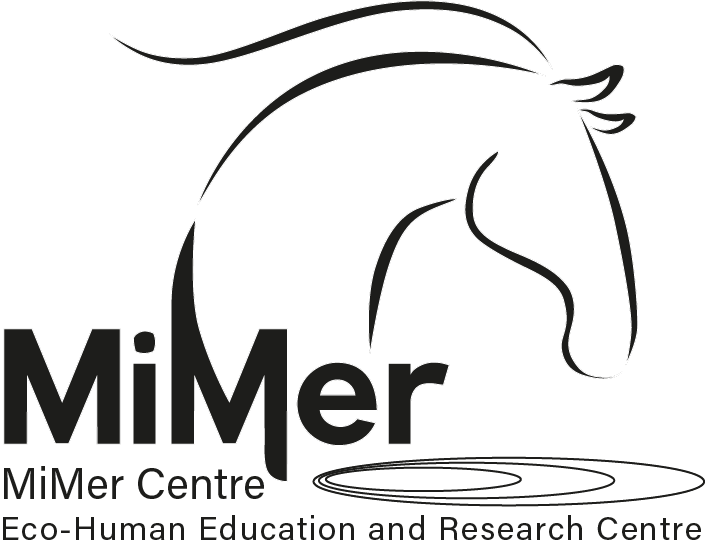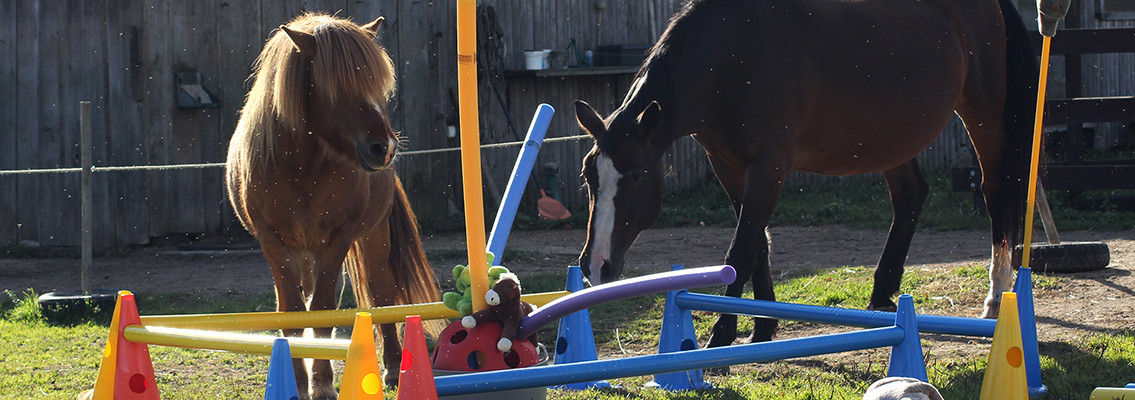EDUCATION IN EQUINE ASSISTED TRAUMA THERAPY/TRAUMA INFORMED CARE
– NEXT TRAINING STARTS MAY 1!
I want to address how a training called pEATT – Equine Assisted Trauma Therapy with a psychodynamic approach – is not only an education in how to do equine assisted trauma therapy, but is open for anyone wanting to learn (or learn more) about how to deliver trauma informed and trauma sensitive equine assisted services. So this training is open for anyone in our equine assisted field, or anyone who wants to join it, whether they are “human professionals” or “equine professionals”.
As well as it is open to anyone with any kind/version of “school of thought”, direction, program… there is NO need for a psychodynamic background! Or even knowing what psychodynamic means or is (it will be explained of course in the training – as well as why it is there, and why we give this training from this perspective.)
This means – if you are coming to this through MiMer – or do not identify with being a trauma therapist – this training pEATT Module 1-4 is replacing our former training named EiT/L – Equines in Therapy and Learning programs – if you have taken any of our 4 EIT/L levels – you will recognize the material (and you also get a discount to this training) – but there are soooo much more information and professional experience – and a great structure as well as solid skillset trainings.
This year, MiMer Centre and Minds-n-Motion have joined our knowledge and experience on how to offer trauma sensitive, trauma aware, trauma informed and trauma focused interventions in equine assisted work.
From my perspective I am seeing how my “dream team” is coming together – to your benefit – as a student of trauma informed, trauma sensitive and trauma focused equine assisted interventions.
As a status-update – we have run our first module soon (consisting of 3 parts) – and will open our second round of Module 1, May 1. Sign-up is open! (The next scheduled one starts August 15, 2023).
You take the full module 1 online. It is designed to give you a very stable fundament/ground to stand on when you move on to the train the practical application of it all – in Module 2.
How our educational program works and what certification and accreditation paths you can take, you can read more about here: https://www.mimercentre.org/index.php/education
The information there will be added to as we move forward and release all the modules.
Here & Now I wanted to share some more background to why I have a strong passion for this work.
Traumatology is a fairly new field in psychology. And psychology itself often seems to struggle with its identity within science. While I am happy so many people are engaging in furthering the knowledge about both the human mind and what happens when trauma is part of the mix – I also see lacks in both theory and application around trauma and how healing can be supported.
So – who am I to say that?
In contrast to Ilka Parent from Minds-n-Motion, who has such deep and extensive knowledge as a psychologist and trauma therapist, outside and inside of the equine assisted field, I have another background. I am a trauma sensitive mindfulness instructor, I do study to become a psychotherapist, and I am studying too, to get my masters in cognitive science, and while I appreciate these studies, they are not my most reliable source of “information”.
Why am I saying that?
It is not to put down any theoretical knowledge. To have that is to know the ideas that we hold in our field, to know what we ourselves think about those ideas – and that is truly important. We all need to think around what we do. Analyze what we do, take note of what we do that works, and what does not work, then think some more, etc. This is part of having a scientific approach to our work. This is how we develop frameworks around our work, how we test out hypotheses, how we can course correct and get overviews, how we can compare different approaches, and so on.
But science is not application. It is not experience. It is not thinking on your feet and adapt to the person you have in front of you. This is where “doing”, and best practice comes in. Crucial, of course, to the outcome of your interventions and services.
What I have, beyond theories, is experience. Not of offering trauma therapy (Ilka (and her team) has that, tons of it). I do have a lot of experience of delivering trauma informed care. But again, this is not my most valuable experience, that I can offer you knowledge from, even if this too is very important, as my professional experience of facilitating and supporting people in a trauma informed and sensitive way, even in a trauma focused way (just not therapy) in different equine assisted and nature assisted interventions.
My most valuable experience is my own experience of what it was like to live with “untreated”, unprocessed trauma and trauma consequences, and then the experience of going through trauma therapy and working my way through it all. How I used the interventions and the support and therapy offered – and how I supported myself and found out what works for me.
So what I add to this new training (– that has the name pEATT, coming from Ilka’s educational background and vast experience of working psychodynamically with trauma, in equine assisted trauma therapy), is a mix of education and experience, as a provider of equine assisted interventions (for more than 10 years) , both as an equine professional and as a mental health provider (albeit not yet as a therapist – but now entering the phase of being a trainee therapist), as an educator and trainer on equine assisted interventions (now on my 5th year), as a researcher/scientist (since 2013), as an educator on equine welfare and wellbeing (including behavior, communication and social dynamics) for more than 15 years, AND my own experience (5 years) as a client in equine assisted trauma therapy + the many years of various studies in cognitive science, psychology, traumatology – and horses, as well as my experience from being the director of MiMer Centre for 10 years now – an international education and research centre operating in our field of equine assisted interventions.
See? I am not as easy to pigeon hole, I don’t have the right letters (yet), to put after my name. And maybe I will never get them, as I am also quite neurodivergent and really struggle to fit into traditional educational systems (and other systems).
I do however think that Ilka’s and her team from Minds-n-Motion, paired with me and my team from MiMer Centre – are offering you a very solid training in how to work with trauma in equine assisted interventions. No matter if you are a fully licensed trauma therapist and EMDR therapist already (if you are you can become certified in pEATT,) or if you are any other kind of therapist, mental health provider, teacher or coach, wanting to support people with trauma, or “just” wanting to make sure you are properly trauma informed, trauma aware and trauma sensitive, so you will not add harm to people who already have suffered a lot of harm, by not being properly trained as an equine assisted provider.
If you are this other kind of person on the mental health side – you can become and accredited EATIC trainer and facilitator of equine assisted trauma informed care (our TS-EAM) e.g.
If you are an equine professional – you can choose yourself what kind of interventions you want to support and choose to become pEATT certified to work with a pEATT certified therapist or if you want an EATIC accreditation and work with an EATIC accredited team, and even, if it interests you, become an MiMer EATIC trainer (and TS-EAM facilitator, or/ad a Rewild Your Heart facilitator).
I know this can sound messy, how we have set up these trainings, with different choices. This is why I keep writing about it, to give you time to estimate if this training is for you.
Both Ilka and I are happy to answer your questions.
If you have taken any training with us before, you are also eligible for discounts on the pEATT/EATIC training.
Ilka and I with our teams are working tirelessly to put the whole of this training out (4 modules and some added offers), consisting of a mix of online and in person parts, to best support both theoretical knowledge and skillsets training and application of theories, techniques, and models as well as to practice “thinking on your feet”.
We are also in the process of translating this training to several different languages. A huge project. And that will take some time. But it is important to us to make this kind of knowledge and practice available to as many providers as possible.
I and my team in MiMer are not driven by becoming “rich” or “famous” (and MiMer Centre is a non-profit organization as well as an NGO and a trust/foundation) – but by our passion for our field, for alleviating trauma and trauma consequences, by our passion for horses as equal team members. Part of this drive is to offer these trainings, because by training other providers, we reach more clients, more EAP/L teams, more horses with knowledge and experience we find important, reflected in the trainings we have, and are putting together.
For the module 1, part 1 training that starts May 1, you sign up here: https://mimer-centre-school.teachable.com/p/peatt-psychodynamic-equine-assisted-traumatherapy-module-1-part-1
If you want to sign up to the bundle of all 3 parts in module 1, you do this here: https://mimer-centre-school.teachable.com/p/peatt-psychodynamic-equine-assisted-trauma-therapy-module-1-part-1-3-bundle
You find more info about Ilka Parent, her team and Minds-n-Motion here: www.mindsnmotion.org
And about me, my team and MiMer Centre here: www.mimercentre.org
And please reach out to us with any questions you might have!
Warmly welcome to pEATT & EATIC!
Katarina
PS. As I mentioned before, you do not need to know anything about psychodynamic therapy to join, or to learn a lot about how to provide well researched equine assisted trauma work (pEATT is a well-researched trauma focused EAP/EATT model). I am myself studying to become a person centred psychotherapist. This training is based on best practice and as I hope is coming through, loads of experience from and lots of years and years in the EAP/L field, together with science and research, with a psychodynamic perspective. It means we use the psychodynamic model to help you understand basic concepts in trauma, the ones you will find in any sensible trauma course, as a lot of trauma is relational, inter-relational. And even trauma that isn’t, is intra relational (affecting your relationship with yourself and the world, at large).
There is no competition between models or schools in the training we offer. It is foremost based in traumatology, with Ilka’s own training giving it a psychodynamic perspective. I sometimes represent and present other perspectives and it is still a very coherent training.
Did this help you – If you felt confused over something in our new training?
If you still have questions – we will as I said before, happily answer them!
When you subscribe to the blog, we will send you an e-mail when there are new updates on the site so you wouldn't miss them.


Comments